Related Research Articles
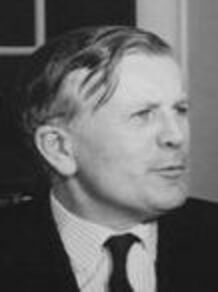
Joseph Grimond, Baron Grimond, was a British politician, leader of the Liberal Party for eleven years from 1956 to 1967 and again briefly on an interim basis in 1976.
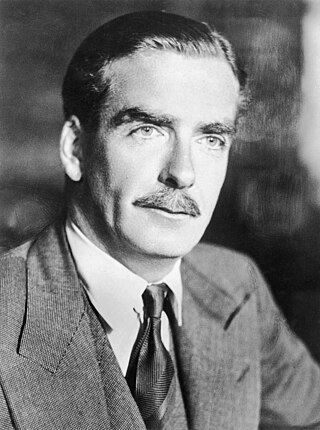
The 1955 United Kingdom general election was held on Thursday 26 May 1955, four years after the previous general election in 1951. It was a snap election: after Winston Churchill retired in April 1955, Anthony Eden took over and immediately called the election in order to gain a mandate for his government. It resulted in a majority of 60 seats for the government under new leader and Prime Minister Anthony Eden; the result remains the largest party share of the vote at a post-war general election. This was the first general election to be held with Elizabeth II as monarch. She had succeeded her father George VI the year after the previous election.

The 1959 United Kingdom general election was held on Thursday, 8 October 1959. It marked a third consecutive victory for the ruling Conservative Party, now led by Prime Minister Harold Macmillan. For the second time in a row, the Conservatives increased their overall majority in Parliament, this time to a landslide majority of 100 seats, having gained 20 seats for a return of 365. The Labour Party, led by Hugh Gaitskell, lost 19 seats and returned 258. The Liberal Party, led by Jo Grimond, again returned only six MPs to the House of Commons, but managed to increase its overall share of the vote to 5.9%, compared to just 2.7% four years earlier.

The 1922 United Kingdom general election was held on Wednesday 15 November 1922. It was won by the Conservative Party, led by Prime Minister Andrew Bonar Law, which gained an overall majority over the Labour Party, led by J. R. Clynes, and a divided Liberal Party.
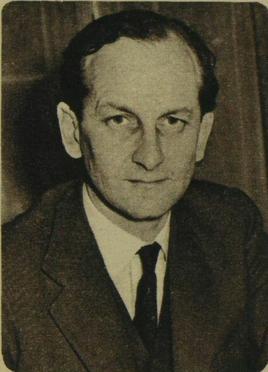
Mark Raymond Bonham Carter, Baron Bonham-Carter was an English publisher and politician. He was created a life peer in 1986.
The Orpington by-election in 1962 is often described as the start of the Liberal Party revival in the United Kingdom.
Wednesbury was a borough constituency in England's Black Country which returned one Member of Parliament (MP) to the House of Commons of the Parliament of the United Kingdom from 1868 until it was abolished for the February 1974 general election.
Torrington was a county constituency centred on the town of Torrington in Devon. It returned one Member of Parliament (MP) to the House of Commons of the Parliament of the United Kingdom from 1950 until it was abolished for the February 1974 general election.
Parliamentary by-elections in the United Kingdom occur when a Member of Parliament (MP) vacates a House of Commons seat during the course of a parliament.
The 1929 Holland with Boston by-election was a by-election held on 21 March 1929 for the British House of Commons constituency of Holland with Boston in Lincolnshire.
Percy Basil Browne was an English businessman, farmer, amateur jockey and Conservative Party politician. He was Member of Parliament for Torrington from 1959 to 1964.
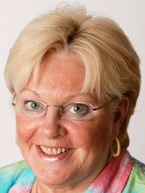
The Glasgow Govan by-election was held on 8 November 1973, following the death of John Rankin, Labour Party Member of Parliament for the Glasgow Govan constituency. Rankin had died one month earlier, on 8 October 1973. Rankin had held the seat since 1955. With the exception of a narrow Conservative victory in 1950, the seat had been solidly Labour-held since 1918. For the by-election the Labour Party nominated Harry Selby, a veteran activist in Glasgow and a former Trotskyist. It was later reported that Selby's selection had been controversial with some Labour members who felt that at the age of 61 he was too old to be starting a parliamentary career.
The Mitcham and Morden by-election was held on 3 June 1982. It was a rare example of a governing party gaining a seat in a by-election.

The 1972 Rochdale by-election, was a parliamentary by-election held on 26 October 1972 for the British House of Commons constituency of Rochdale.
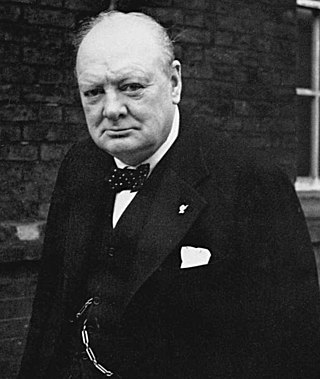
Elections in England and Wales, 1949 held during the week of 4–9 April for County Council positions, resulted in sweeping Conservative gains and correspondingly heavy Labour losses. A remarkable feature of the elections was the "dead heat" in the London County Council between Labour and the Conservatives, who each won 64 seats, with the Liberals retaining one seat, that of Sir Percy Harris in Bethnal Green. Outside London, Labour lost its former control of Middlesex, Essex, Northumberland, and the West Riding of Yorkshire; retained control of Derbyshire, Durham, Glamorgan, Monmouthshire, and Nottinghamshire, but won Carmarthenshire, the only county gained by Labour.
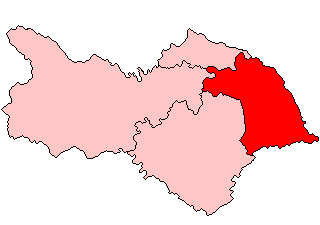
The Scarborough and Whitby by-election was a parliamentary by-election for the British House of Commons constituency of Scarborough and Whitby on 6 May 1931.
The Manchester North West by-election was a Parliamentary by-election held on 24 April 1908. The constituency returned one Member of Parliament (MP) to the House of Commons of the United Kingdom, elected by the first past the post voting system.
Audrey Manuela Penelope Heather Sykes was a British Liberal Party politician who later joined the Labour Party.

Laura Miranda Grimond, Baroness Grimond was a British Liberal Party politician, and the wife of party leader Jo Grimond.

The 2021 Calderdale Metropolitan Borough Council election took place on 6 May 2021 to elect members of Calderdale Metropolitan Borough Council in England. This was on the same day as other local elections. One-third of the seats were up for election.
References
- ↑ "1958 By Election Results". Archived from the original on 25 June 2012. Retrieved 14 August 2015.
- British Parliamentary By Elections
- Richard Kimber's Political Science Resources
- Obituary: Lord Fanshawe of Richmond, Independent
- Political Television 1955-59: A review Archived 1998-12-01 at the Wayback Machine
- ↑ Wallace, William. The Liberal Revival. Cornell University. p. 27.